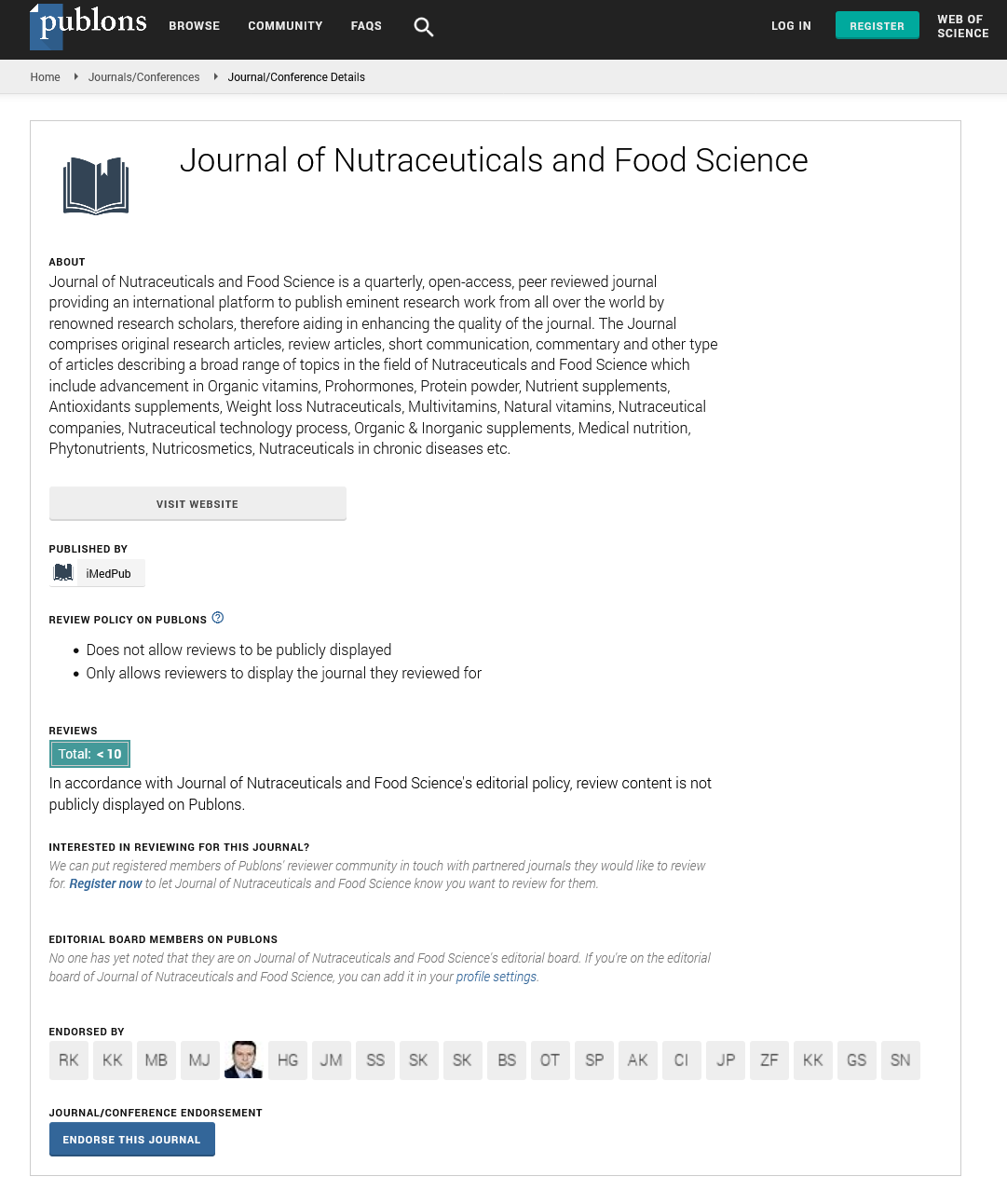Abstract
Modern healthy nutrition need to be based on omix data and meet 3P medicine expectations
Modern nutrition is a multidisciplinary and complex subject combining the approaches of the epidemiology, biochemistry, chemistry, behavioral science, biology, food science and medicine. Thus we need to use all the available complementary data in order to construct “next generation functional foods”.
The demands to these foods one might list: 1) be natural of origin, 2) be safe, 3) contains minimal or zero chemical / genetically modified additives, 4) be simple in preparation with minimal cooking efforts, 5) be fermented in order to be rich on biological active compounds and beneficial microbes 6) be prepared from naturally cultivated edible plants, 7) be clearly labeled of all the ingredients and 8) better be recognized by brand or at least by codes of food composition data bases. Ideally will be to have a data about these products exact influence on human health, based on the results of clinical approbation: 1) of their different components or 2) whole meal / diets. To meet this goal from first glance complicated (bio) technologies should be exploited. Interestingly that the majorities of these requirements are typical for the traditional well-known ethnical dishes that are 1) mostly accepted by nations, 2) can be easily prepared, 3) imagined as food with healthy impact on human health.
The challenges to make these new generation foods widely used are 1) short shelf life, 2) packing and transportation’ difficulties, 3) varieties of recipes 4) (bio)technological gaps. Recently we developed a line of such a novel traditional functional modern foods of new generation EdiensTM. These products had been recently created particularly with unique microbial starters which are sequenced and preliminary selected / investigated in numerous in vitro, in vivo, ex vivo models. These products had been recently created particularly with unique microbial starters which are sequenced and preliminary selected / investigated in numerous in vitro, in vivo, ex vivo models. In addition the synergetic properties of these strains of different phylogenetic groups with most popularly used plant originated biological active compounds isolated from local edible plants and berries had been carefully detected.
Person-specific efficacy to regulate human gut microbiome had been detected for individually prescribed foods via limited controlling diet studies. In order to promote the implementation of newly developed functional foods relevant databases and AL for the calculation of personalised nutrition needs had been established.
Author(s): Nadiya Boyko
Abstract | Full-Text | PDF
Share this

Google scholar citation report
Citations : 393
Journal of Nutraceuticals and Food Science received 393 citations as per google scholar report
Journal of Nutraceuticals and Food Science peer review process verified at publons
Abstracted/Indexed in
- Google Scholar
- Publons
- Secret Search Engine Labs
Open Access Journals
- Aquaculture & Veterinary Science
- Chemistry & Chemical Sciences
- Clinical Sciences
- Engineering
- General Science
- Genetics & Molecular Biology
- Health Care & Nursing
- Immunology & Microbiology
- Materials Science
- Mathematics & Physics
- Medical Sciences
- Neurology & Psychiatry
- Oncology & Cancer Science
- Pharmaceutical Sciences


